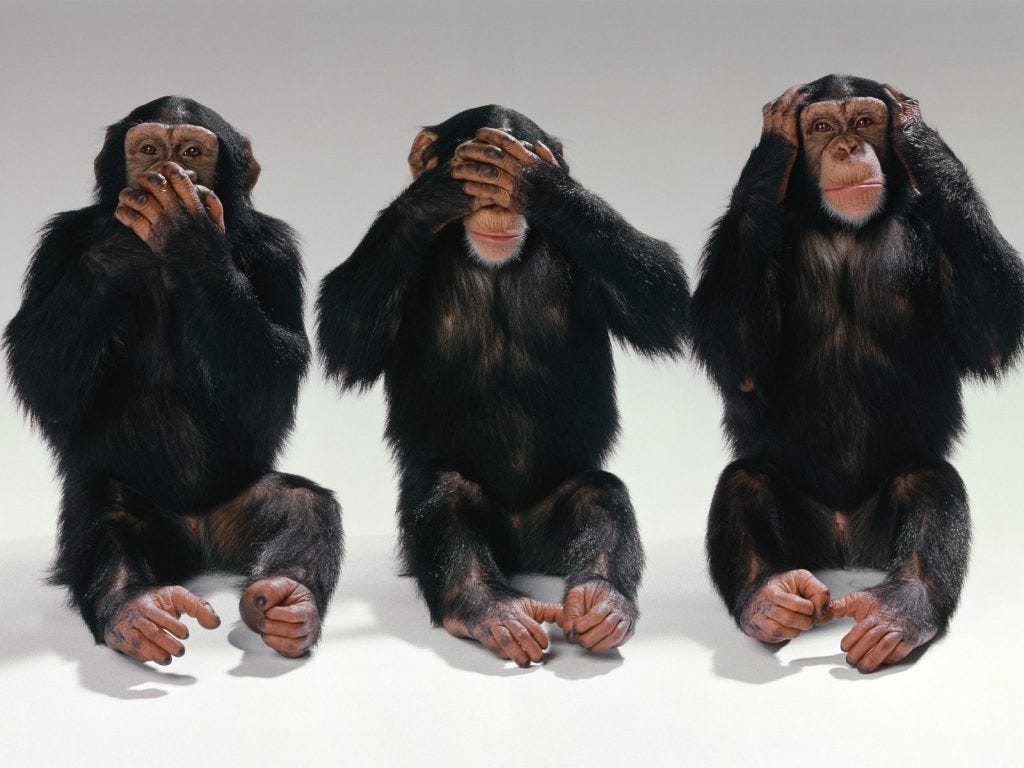The Costs of Suppressing Speech
1. An Unusual Kind of Speech Suppression
Someone invited me to write a paper about free speech. Most of what I have to say on the subject is old news: I basically agree with John Stuart Mill, and I don’t understand why everyone else doesn’t agree. Principles of free speech used to be part of our shared understanding of liberal democracy. I grew up on stories about the importance of free speech, like the one about the ACLU defending the Nazis’ right to march in Skokie. (Note: The ACLU are not and were not pro-Nazi.)
Anyway, today we’re seeing an unusual kind of speech suppression. Traditionally, you get suppression of ideas when there is a single dominant ideological faction in society. Some faction defined by controversial philosophical, religious, or political views manages to take control of society, and then they use the power of the state to suppress challenges to their ideas.
But what we have today is a situation where there remain competing factions with comparable levels of power in our society – neither the left nor the right has gained overall control of the society – and yet one faction is still trying to suppress dissent from their main ideas. Normally, this doesn’t happen because you simply don’t have the power to suppress dissent unless you have a very dominant position in society. And since you know this, normally, you don’t even attempt it.
But people are doing it today because our society has become highly ideologically segregated. There are particular institutions or segments of society that are extremely dominated by a particular ideological faction (the woke/SJW left), even though that faction is a minority in the larger society. So this faction tries to suppress dissent using the institutions that they control. They also use the much greater emotional commitment and activist tendencies of their faction’s members to persecute the other side, e.g., starting petitions, email campaigns, etc., to try to cause personal harm to blasphemers. (It’s hard to organize an activist campaign among conservatives, and even harder among moderates.)
So I was thinking about what might be the effects of speech suppression in this circumstance. Not surprisingly, I don’t think it’s good. So here are some of the problems I see (besides the old J.S. Mill points, which I won’t repeat here).
2. Problems
a. Falsity
The first and most obvious problem is that you are wrong. That is, if your side is the side trying to suppress dissent, then I think it’s overwhelmingly likely that the beliefs they’re trying to protect from criticism are basically just false. Think about cases like the citizens of Athens executing Socrates, or the medieval church prosecuting Galileo, or their executing Giordano Bruno, or the Soviets suppressing dissent from Marxism, or the Chinese government suppressing criticism of themselves. When one side is trying to suppress dissent – not to rebut the dissent, but to stop anyone from even expressing it, by visiting personal harm on people who express dissent – that side is generally factually wrong.
Why is this? One explanation is that people in general are virtually always wrong in their major philosophical, religious, and political views. That’s always been the case, so it’s probably still true today, so it’s probably true of you. (I don’t expect you to accept this, though.)
Another explanation is that people who are right are more likely to respond to dissent by citing evidence and arguments that refute the opposing view. People who are factually wrong are more likely to respond with suppression techniques, because they don’t have convincing evidence or arguments, because they are wrong.
This, obviously, is not a 100% correlation. A person who is factually correct could still prefer to suppress dissent, and people who are factually wrong could (and often do) still try to prove that they are correct. But if you’re wrong, it is more likely that you will try to suppress dissent.
b. Intellectual Degeneration
A second problem, besides that your faction is probably wrong in their main ideas to begin with, is that your faction is going to degenerate over time, if they regularly exercise the power of suppressing dissent. One reason for this is that the faction will probably be taken over by people who like exerting power over others, and who enjoy crushing enemies. And those people are not going to make the movement better. Another is that people, both within the faction and without, will start to fear to challenge anything said by the faction.
So ideas start to be selected by politicking, rather than by normal intellectual standards involving evidence and reasons. And so you get things like Lysenkoism. (Lysenko was a crackpot Russian biologist who rejected standard evolutionary theory and managed to get thousands of mainstream biologists dismissed or imprisoned, because he had political pull in the Soviet Union, and he claimed that natural selection was a bourgeois capitalist idea or some crap like that.)
I leave it to the reader to apply this to the present day.
c. Penumbral Suppression
Let’s say that the ideology whose proponents are suppressing dissent is actually basically true (surprisingly enough). So by suppressing dissent, they’re mainly suppressing falsehoods.
Even so, a problem is going to develop that a lot more content is actually going to be suppressed than what they are directly, deliberately trying to suppress. The reason for this is that observers can’t tell for certain which ideas will be targeted and which will be allowed. Since personal harm results from a wrong guess, people will err on the side of caution.
Furthermore, many intellectuals, the sort of people who would normally do research that advances society, are very timid people. Thus, they are likely to be extra cautious about saying the wrong thing. If you’re a smart person living in the Soviet Union, you might decide to completely avoid doing any work in any area that relates to Marxist ideology. Which is almost every area. If you’re living in medieval Europe, you might decide to completely avoid religion and philosophy. If you’re an academic in contemporary America, you might decide to completely avoid all topics relating to race, gender, or perhaps even all political topics. Again, it is not only the people with the wrong views who should avoid these topics. People with the right views will avoid hot button topics, if they are risk-averse and value their personal well-being.
d. Polarization & Credibility Loss
The above problems all apply to speech suppression in general. Now for one that applies specifically to the case of speech suppression by a faction that does not control the overall society, i.e., they are opposed by at least one other faction with comparable power.
In this case, the suppression does not succeed in what I assume is its main aim, to have more people accept your ideology. Rather, it has the effect of polarizing society. The people already aligned with your faction become more extreme, and they fail to hear or engage with opposing ideas.
But the other faction also becomes more extreme. They aren’t prevented from hearing criticisms of your views, because they have their own content sources (like Fox News or, in some cases, the President). These sources not only publicize the challenges to your views that you’re trying to suppress, but they also publicize how you’re trying to suppress those challenges. Your side doesn’t hear this, because they don’t tune in to the enemy information sources, but the other side hears it. They are especially likely to draw the conclusion that your side is wrong (even more so than they already thought), per the reasoning of (2a) above, and then that you are actually evil. All this pushes them further into their own bubble, as they start distrusting anything that comes from the institutions dominated by your faction.
Example: Fox News listeners regularly hear about the suppression of free speech in the Academy, and by left-wing intellectual elites generally, and they draw the conclusion that one can’t trust anything coming from the libtard academic and media elites.
This creates obvious problems. What if the academics find some important information that people really need to know? They try to tell the public, but half the public assumes that it’s just part of some partisan agenda. The mainstream media reports on it, but again, half the public distrusts anything they say (that isn’t confirmed by their preferred sources).
The academic and media solution: Keep repeating “People should listen to us, and if you don’t, you’re being stupid and partisan.” How well do you suppose that works? Right, it just backfires and pushes people further into their bubbles. There’s nothing for the academics and mainstream reporters to say, because the well has already been poisoned – anything those sources say is just going to be interpreted as more partisan manipulation.
. . .
All of this might have seemed worth it to the big ideologues of the past, like the medieval Christians who thought they were saving souls from eternal damnation, or even the communists who thought they were ushering in utopia on Earth. It’s a little hard to see, though, if what you’re doing is only stopping some people from momentarily feeling offended.





